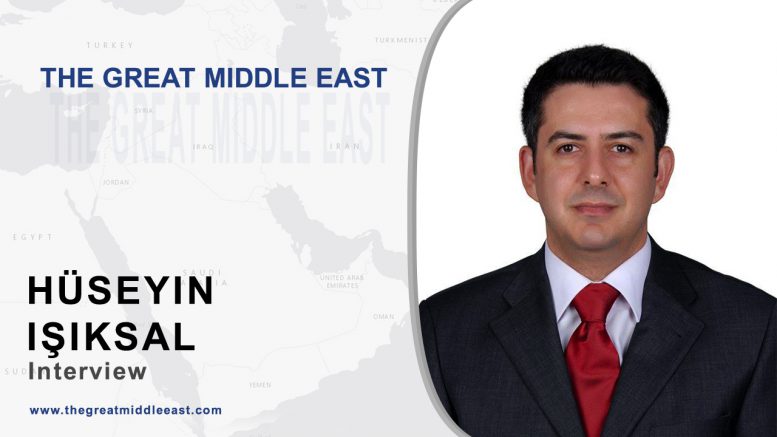Another attempt to resolve the Cyprus issue has recently failed in Switzerland. This time, the reason was a number of demands of the Greek side to the Turkish side. In this regard, we offer you our interview with Assoc. Prof. Dr. Hüseyin Işıksal, Near East University, Department of International Relations, Nicosia, the Turkish Republic of Northern Cyprus.
Before the failure of the negotiations on Cyprus in Switzerland, there was a feeling that these were the last such negotiations, and this time the solution would be found. However, it turned out to be different. Do you think there will be a second chance?
– Well, first of all, it should be emphasized that there are different attitudes of both sides. For Greek Cypriots, they don’t have any time limit or time pressure on them and because of this, they can continue to this negotiation process as long as they get what they want. But for the Turkish side, we know that they are under the bargain of international isolation and embargos, they want to reach somewhere, they want to get away from this and break through, and so time is more important for Turkish Cypriots than the Greek side. Departing from this point, we can say that, as you see in Crans-Montana, the Greek Cypriots asked for too much reconciliation from the Turkish side which didn’t get accepted and they left the table. From now one, will there be a second chance? It is a good question and there is not a clear answer for this. Still there are different answers from different actors. The right wing in Northern Cyprus and Turkish officials repeatedly claimed that this is the last chance, because the two sides’ views are so different, there is no way of reaching the same ground, and therefore there is no need for the new conference. On the other hand, there are some left-wing politicians and parties in Northern Cyprus insistently repeating that negotiations should be continued and we shouldn’t give up this process. I think that at the current conjuncture and when we look standings of the two sides there is almost no chance for a federal solution. So, this should be the last one and there is no meaning to meet again. It is quite clear that Greek Cypriots don’t want to share power with the Turkish Cypriots and the only reason that brought then to the negotiation table is to force Turkish Cypriots for a solution that will suit them. In other words, they are not ‘listening’ Turkish Cypriot side and insist on their own terms. I think we are approaching the time where we should think “out of the box” and talk about a confederal or two state-based solution.
The Greek side does not want the Turkish military to be on the island, but we know that there is a large British base in Cyprus. Does the Greek side raise the issue of closing this base?
– The answer to this question is clearer than the other questions, because the answer is simply “no”. There is a Turkish proverb that I like, it says “A horse neighs according to the owner”. So this is exactly the case, the Greek Cypriots are making this arrogant attitude against the Turkish soldiers and Turkish side by saying that they don’t want any guarantee, any soldiers or bases on the island. On the other hand, there are two British sovereign military bases on the island. Nobody questions their existence and these bases are out of the EU law. Now the Great Britain is in the state of “Brexit”, but even before that when the Great Britain was a member of the EU these bases were not included in the territory of the EU, so the British can carry out any kind of intelligence activities and anything that may clash with the European Union principles and laws. Therefore, the Greek Cypriots’ and Greece’s attitude is very political and include double standards. They are not questioning these bases, because the UK, the USA, and other Western countries are far from their reach and power, but on the other hand, they are questioning the Turkish soldiers. It will not be wrong to claim that 90% of Turkish Cypriots want Turkish soldiers’ existence and effective guarantee on the island. So it is a “must must” for them for a solution. When we are talking about Turkish soldiers, we are not talking about any kind of occupational forces as Greek Cypriots claim. We are talking about the forces that are demanded and supported by the Turkish Cypriot community, so their position is not similar to any other foreign troops.
Since 1980s, there has been the Turkish Republic of Northern Cyprus. If no consensus on the reunification of the island is reached, what are the chances of Northern Cyprus gaining international recognition? On the other hand, there is, for example, the example of Taiwan, which exists as a semi-recognized state
– This is maybe the most difficult one to answer and maybe the most important, because, as I mentioned before, the negotiations on Cyprus have been continuing for almost 50 years now, since 1968. There is no comprehensive solution to the Cyprus problem, there is nothing left on the table that is not discussed and negotiated. Nothing is left unknown. What will be the next point? That is the question that Turkish Cypriots should answer sooner than later. As you know, the Turkish Cypriots declared their state on 15 November, 1983. Only Turkey has recognized this state. If you look at the history of the UN Security Council whose decisions are binding, in very few case they reach a full consensus. However, on Turkish Cypriot case, all the members of the Security Council came together on 17 November, 2 days after the declaration of the Turkish Republic of Northern Cyprus (TRNC) and they declared the UN Security Council Resolution 541. This Resolution declared Turkish Cypriots proclamation as invalid, demanded its withdrawal and called all the other states to recognize no state than the Republic of Cyprus. So, when we talk about international law perspective, maybe the official recognition of the TRNC is not possible, but on the other hand in the Annan Plan referendum in 2004 the Turkish state was envisaged as “Turkish Cypriot State.” With this name, Turkish Cypriots are observatory member of the Organization of Islamic Co-operation (OIC). Therefore with this name Turkish Cypriots may continue or we can try different models. One of these models is Taiwan model. As you know, Taiwan is not a member of the UN, but it is included in all the sporting, cultural and economic activities, there are direct flights to Taiwan from everywhere in the world. Therefore this could be one of the alternatives for the Turkish Cypriots where we can compete in sporting competitions and there could be direct flights to Northern Cyprus. Also Kosovo Model one other alternative, where we can re-apply to the process of international recognition of the new state and new name. For this option, the United Nations itself should officially declare the end of the Cyprus negotiation process. However, it should be underlined that the Kosovo case is a political one. Without the United States support, Kosovo couldn’t be recognized. In this example, the Turkish side should have a full support at least from one permanent member of the Security Council. We can’t name a state, because you know that Turkey and Russia have good relations, but still the Greek Cypriots and Russia have good relations too. This state could be Russia, the US or may be China but the point is that a state should have at least one supporter of the Security Council. One other alternative could be Hong Kong model. In this model the Turkish Cypriots will be autonomous in their internal affairs, the Northern Cyprus will be a free trade area and they will have some security and foreign policy links with Turkey. To sum up, the Turkish Cypriots are fed up with the current deadlock, they don’t want to be prisoners of the Greek Cypriots anymore. Therefore, there will definitely be a next step and alternatives for Turkish Cypriots and I think we will start to discuss these scenarios in the very near future.




Be the first to comment at "Hüseyin Işıksal: Greek Cypriots don’t want to share power with the Turkish Cypriots"